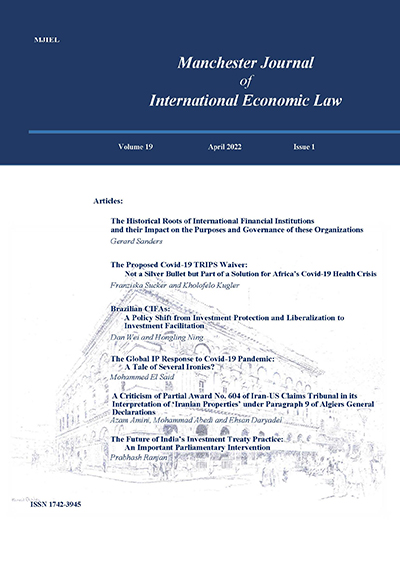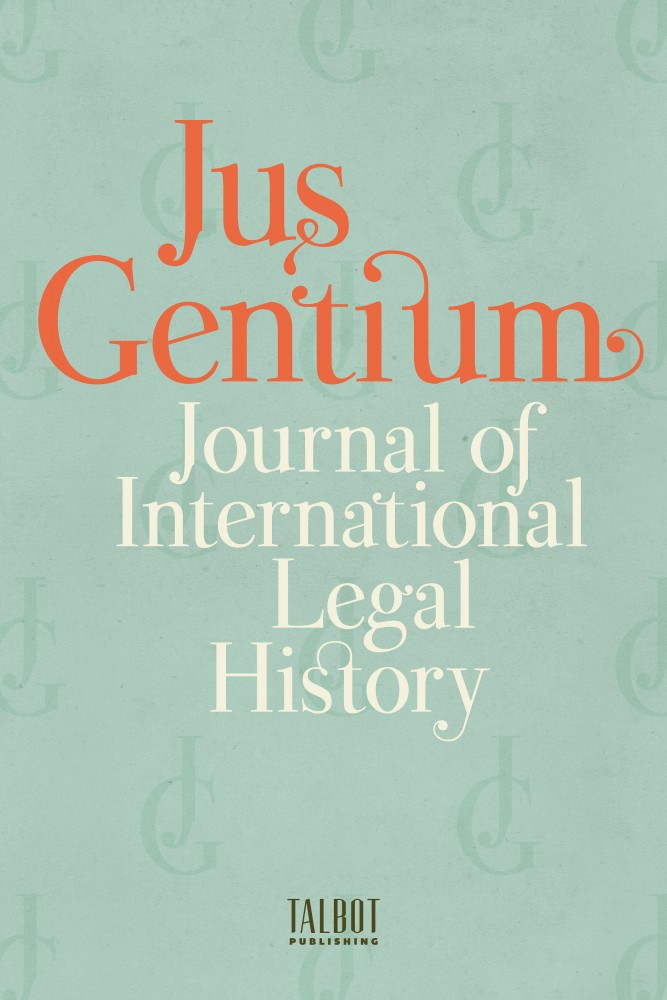| Image Source: Brill |
Website of the European Society of International Law's Interest Group on the History of International Law.

| Image Source: Brill |
 |
| Image Source: National Archives (Ratification of Treaty of Amiens) |
History, Politics, Law: In Conversation—Doctoral workshop
Bentham House, UCL /
online
16 July 2022
To mark the publication of History,
Politics, Law: Thinking through the International (CUP 2021) the editors are convening a forum
for reflection on the interdisciplinary conversations reflected in this volume
and other recent works, including Martti Koskenniemi’s To the Uttermost
Parts of the Earth: Legal Imagination and International Power, 1300–1870 (CUP,
2021).
The event will have two components: a day of
panel conversations and a book event on 15 July, open to all; and a smaller
by-application doctoral workshop on 16 July, c. 9am–4.30pm not open
to the public.
The doctoral workshop will, like the panels of
the previous day, pursue a methodological conversation through questions
emerging in concrete projects. However, the doctoral workshop will allow for
more in-depth engagement with written work, circulated in advance. This work
need not be polished papers; indeed it would preferably be work-in-progress,
with which participants are still grappling. We are open to work on all
periods, and from diverse disciplines, engaged in some way with histories of
law.
The workshop will have c. 12 participants. We
are able to fund travel from within the UK and potentially further afield,
depending on the mix of those requiring travel funding; and a dinner and one
night’s accommodation in London (possibly two, for those whose travel would
otherwise complicate online attendance at the previous day’s workshops). For
those from outside the UK, or for whom in-person travel is not feasible, we are
happy to facilitate remote participation (and please note that one of the
editors will also be remote, so you will be in good company!).
Format of workshop
In the workshop itself, we aim to have at
least 30 minutes focused on the work of each participant, with the sequence
arranged in such a way as to draw together participants who might be working on
common periods or themes, or whose work might raise similar questions. Starting
from the assumption that we have all read the work, we will ask participants to
present each others’ projects very briefly (c. 5 mins), offer participants an
opportunity to make any corrections or further observations which might inform
discussion, and then have c. 25 mins of commentary from readers including
Annabel Brett and Martti Koskenniemi, and Q&A with other participants.
Indicative schedule
Evening of 15 July: dinner for in-person
participants
9–11am: discussion of projects (participants
1–4)
Coffee
11.30–1pm: discussion of projects
(participants 5–7)
Lunch (at UCL)
2–4.30pm: discussion of projects (participants
8–12)
To express interest in participating …
Please send a 500–1000-word expression of
interest by 23 May 2022 to megan.donaldson@ucl.ac.uk,
sketching the project in which you are engaged, and specific aspect(s) on which
you would like to focus. We will confirm invitations by c. 27 May
(taking into account not only the interest of individual projects but also
complementarity between possible participants). We ask that participants then
send up to 10,000 words of writing for discussion by 24 June (a
hard deadline), to be shared with all participants in the doctoral workshop.
Participants can send significantly less than this, if they prefer: the idea is
to send draft text which will allow others to grasp the rough direction of the
project, and the way in which you are working with materials, as well as
specific ‘methodological’ problematiques of interest.
 |
| Source: Manchester JIEL |
2022 ESIL Annual Conference, Utrecht
Pre-Conference Workshop ESIL Interest Group on
the History of International Law
Histories of Inclusion / Exclusion in
International Law
Today’s international lawyers and historians of international law have become acutely aware that the legacy of modern international law is ambivalent. International law is claimed to be a normative project evolving towards universal scope. Yet, the idea of it has also been (ab)used for purposes of domination that has excluded non-European territories, peoples, and substantive issues from the scope of protection offered by the allegedly universalist law. Most notably, exclusion has been implemented through the so-called standard of civilization. Yet, international law has experienced many defining moments - the establishment of the League of Nations and the United Nations, proclamation of the Universal Declaration of Human Rights, the adoption of the Geneva Conventions, the establishment of international courts and tribunals beginning with the institution of the Permanent Court of Arbitration and the Permanent Court of International Justice, the Nuremberg and Tokyo Military Tribunals, the International Criminal Court, the Bretton-Woods system and the transition from the diplomacy of the General Agreement on Tariffs and Trade to the World Trade Organisation’s Appellate Body, to name but a few. Altogether, international regimes have included as they have equally excluded many peoples, territories, subject matters, techniques, and methodologies throughout history. How much could international law possibly include – states, individuals, communities, non-state actors, which topics? Everything? Or would it be enough, for peremptory norms and cognate principles to be inclusive? Is there any substance beyond procedural matters of standing to the much vaunted erga omnes? Which methodologies and subject matters have been dominant in the history of international law, and which has international law missed? What, who, when, where, how, and why has been excluded?
Program – 31st
of August 2022, 2 pm – 5 pm (CET)
Word of welcome from
the organizers – Florenz Volkaert
Panel 1: In / Exclusion in international law through
the lens of literature and gender
-
Histories
of Inclusion/Exclusion in International (Criminal) Law
Teodora Schrotter, Cambridge University - University of London
-
Wartime
Sexual Violence in 19th Century International Law
Anastasia Hammerschmied, Universität Wien
-
On
Magic and Mandates: Decolonising Witchcraft and Sorcery in the History of
International Human Rights
Aditi Patil, Human Rights Measurement Initiative
Rashmi Dharia, Sciences Po Law School
Concluding remarks – Jaanika Erne
Program – 1st
of September 2022, 9 am – 12 am (CET)
Word of welcome from
the organizers – Markus Beham
Panel 2: In /
Exclusion in the history of international law and capitalism
-
Law,
ideology and capitalist reason: the violence of abstraction as a mechanism of
exclusion/inclusion in international law
Matheus Gobbato Leichtweis,
Universidad Federal do Rio Grande do Sul
-
Treaties
of commerce and the most-favored-nation clause in late 19th- and
early 20th-century legal doctrine: a tool for economic and/or
civilizational in / exclusion?
Florenz Volkaert, Ghent University
Panel 3: In /
Exclusion of culture and minorities in the history of international law
-
Historicizing
the Politics of Interpretation: The Exclusion/Inclusion of Cultural Context
through Legal Interpretation
Dr. Ríán Derrig, World Maritime University
-
Who are minority rights for?
The Role of Petitions and the League of Nations minority rights regime
Dr. Elizabeth Craig, University of Sussex
Panel 4: In /
Exclusion in the history of international investment law
-
Deconstructing
the exclusion of corporations from international legal personality
Christopher Yaw
Nyinevi, Monash University
-
Equitable
Representation on International Benches and the Appointment of Investor-State
Dispute Settlement Tribunal Members: A Historical Perspective
Yanweng Zhang, University
College London
Concluding remarks – Jaanika Erne
For more information, consult the ESIL website and ESIL Annual Conference website.
 |
| Source: Jus Gentium |